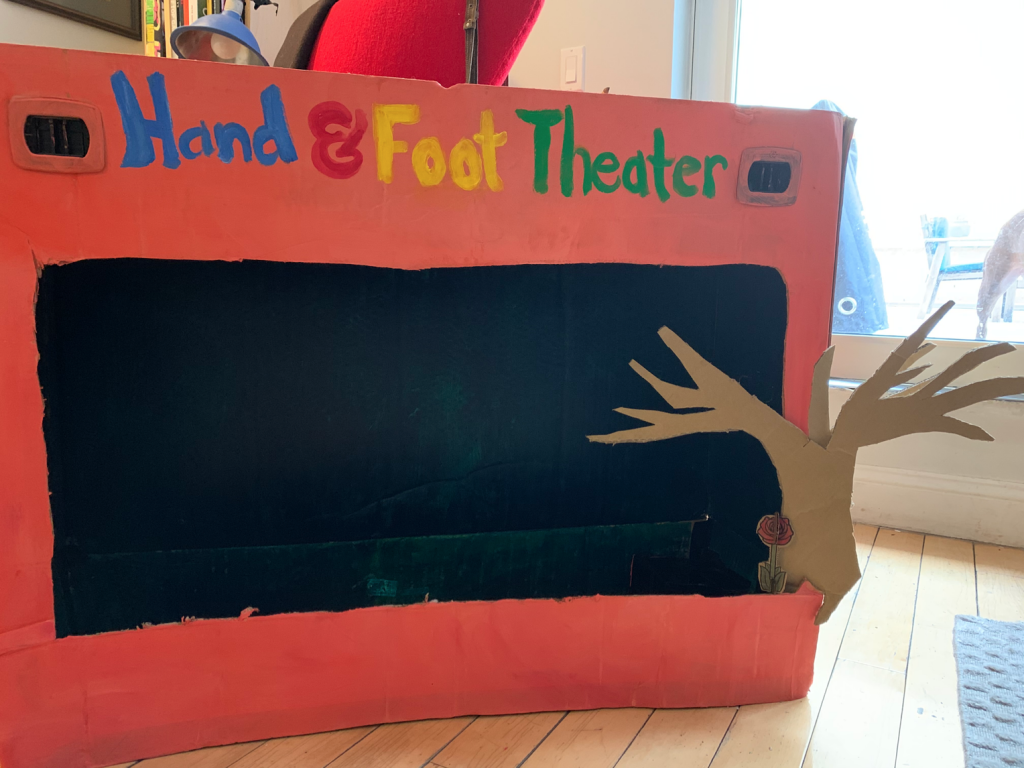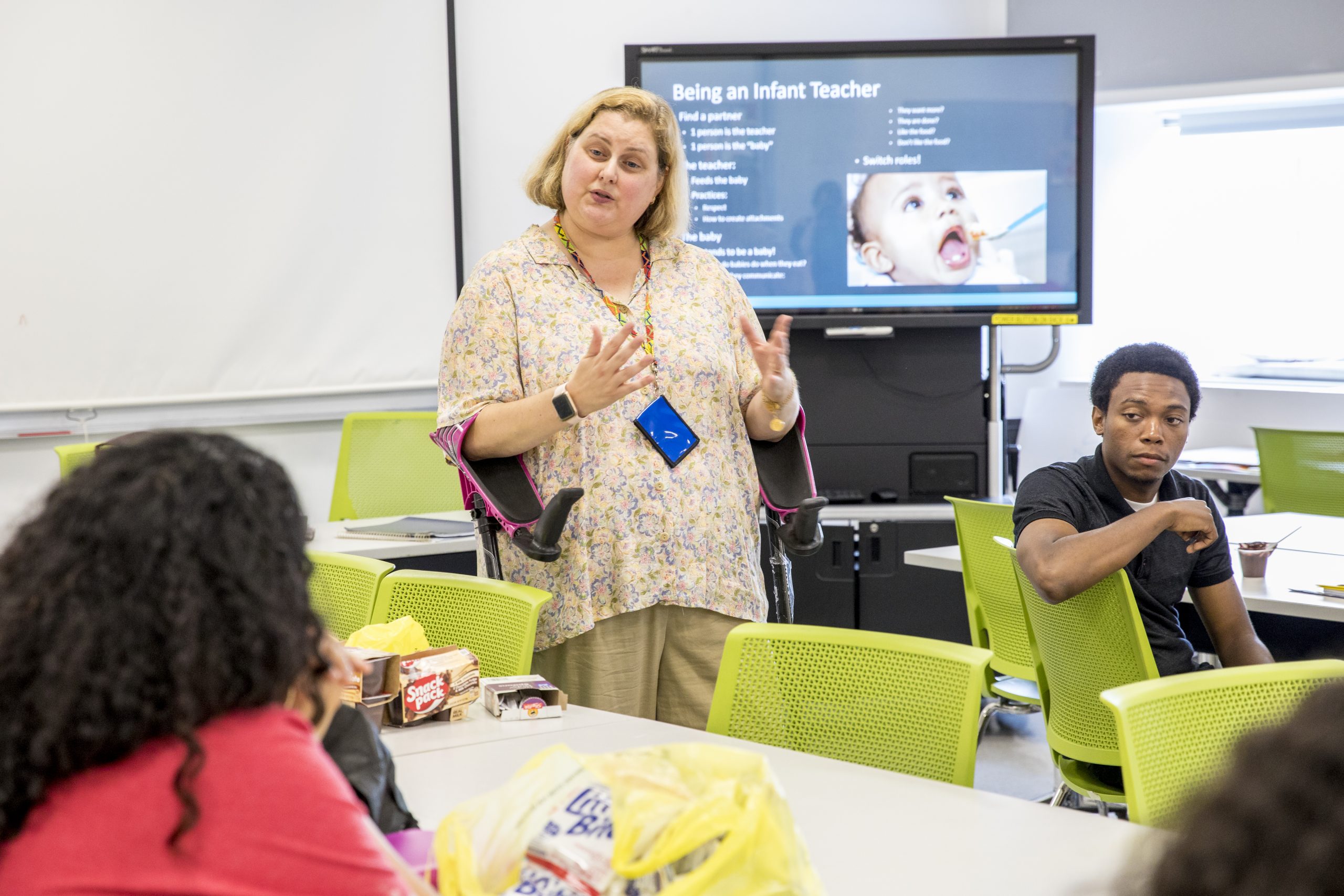In the time of a global pandemic, early childhood educators are discovering how to be and play together while we are apart. Some of us are playing in the digital sandboxes of remote learning. Yet for many, teaching and learning at a distance feels contradictory to the foundation of early childhood education. We all have big feelings about this.
As coaches, we (Andrea and Lori, early childhood coaches at the Institute) are talking with teachers about our new reality in early learning. As we reflect upon the changes all around us, we find the heart of early learning is still just that: our hearts. We make caring connections with our children and with families. At the heart of children’s learning are social interactions between humans with feelings.
In our separate homes, we asked ourselves— what can an educator do? How can we support children’s learning at a distance? Andrea had the idea to revise sessions she developed on puppetry. Lori loved the idea as puppetry offers a route to engage families in creative play. Our collaboration began after reflecting on our work with coachees and this wish: to put puppets into the hands of teachers and children.
The result of our thoughts and collaboration is a new resource: “Puppetry Activities for Preschool Children and Families.” Each activity offers flexible structure, includes ideas for books to provoke children’s thinking, and ways to support them in making decisions. Feel free to personalize and tailor these for children’s interests and build on their strengths.
We imagine you, your children, and their families might create puppets even if you have never done it before. Puppets can be made with the simplest of materials found in the home. Children might animate any object and call it a puppet. Families might make a puppet for their child – toys made for children with love are always children’s greatest treasures. Or children and families might work together to create a puppet. If you are meeting via video conference, maybe the screen space can become a puppet theatre or a puppet party. Bring a willingness to explore, engage your senses, problem-solve, and invite back and forth exchanges. Although we are apart, we can try to carve out time and space to play together.
We will ask for your feedback, and we hope to feature ways that you invite children to explore materials and engage in creative projects. In the playful process of creation, children and families thrive. It is essential to care for one another—body, mind, and soul—now, as always, as early childhood educators.
Download “Puppetry Activities for Preschool Children and Families”


I’d love to hear from our teaching colleagues about the homemade puppets you’ve made. What materials do you use? What works best?